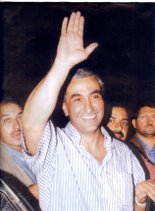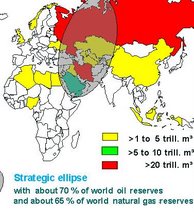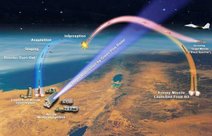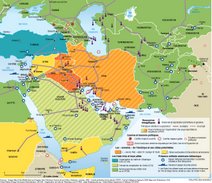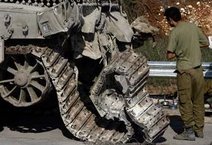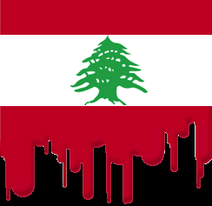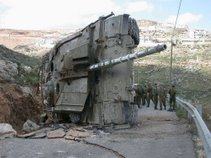 A Live picture of the Co-Heads of the Infamous White House Murder INC, in 2001...., a Joint Venture with Asef Shawkat, the assassin in Damascus!
A Live picture of the Co-Heads of the Infamous White House Murder INC, in 2001...., a Joint Venture with Asef Shawkat, the assassin in Damascus!Tony Karon
The Palestinians' protesters marching on Israel's northern frontier, Israel's Prime Minister Benjamin Netanyahu warned two weeks ago, were "carrying keys to our homes in Jaffa, Acre, Haifa and Ramle", not to "their" homes in Ramallah or Nablus. Actually, Bibi, Palestinians living in Lebanon and Syria don't have homes in Ramallah or Nablus. But what, one wonders, would Mr Netanyahu tell an Israeli child, raised in a system that fudges the more unpleasant aspects of its own history, who asked in all innocence: "But how did Palestinians in Lebanon and Syria get the keys to our homes?"
Mr Netanyahu's rejection of any discussion of the rights of Palestinian refugees might be viewed as the guilty conscience of one who knows that Israel was built on land and property confiscated from the previous owners - and that it was the descendants of those dispossessed families who have lately begun presenting themselves at the Golan boundary fence. After all, there would be no Jewish-majority state of Israel had it not been for the dispossession in 1948 of the Arab majority that lived within what became its borders.
"This is not a conflict about 1967," Mr Netanyahu told his legislature, referring to the occupation of the West Bank, Gaza and East Jerusalem that began in that year. "This is a conflict about 1948, about the State of Israel's very existence."
He may be invoking 1948 simply to avoid withdrawing from the territories conquered in 1967, but Mr Netanyahu is not entirely wrong. For the past 23 years, the goal of the Palestinian national movement has been a state based on the 1967 borders, but statehood on less than a quarter of historic Palestine represents a major compromise for a movement founded to reclaim that which was lost in 1948.
Realpolitik prompted the Palestinian leadership to call for a two-state peace based on the 1967 borders - Israel had become an intractable military, political, economic and diplomatic fact, but establishing Palestinian sovereignty over the territories occupied in 1967 remained an attainable goal. While PLO leaders proclaim the rights of refugees, it's long been clear that they've been negotiating a solution that would resettle them in the 1967 territories, not in the 1948 land from which Israel barred their return. Still, it would take a brave PLO leader to arrive at a camp in Lebanon to tell the refugees they won't be going home.
The Palestinian leadership of President Mahmoud Abbas now seeks a partition of Palestine on terms far less favourable than those offered by the UN in 1947. Even then, it's a partition the Israelis are in no hurry to implement.
Partition, of course, was always flawed. It was proposed by the UN as a compromise between the claims of a Zionist movement seeking a Jewish nation-state in all of Palestine - a goal made all the more urgent by the need to find a home for the survivors of the European Holocaust - and the Arabs who comprised two thirds of Palestine's population and owned the bulk of its land. The 1947 version of the two-state solution gave 56 per cent of the territory to a Jewish state, and 44 per cent to an Arab state. Jerusalem, which fell within the Arab state, would be internationally administered. Its camouflage pattern of barely connected parcels of land raised questions about the viability of the two states partition would create, and the Jewish state it envisaged would have had a population of 500,000 Jews and 400,000 Arabs.
Advocates for Israel love to argue that their side accepted the partition, while the Palestinians rejected it. Of the latter, there is little doubt, although it's hard to imagine many nations that had not been defeated in battle (that came later) accepting sovereignty of just 44 per cent of the country where they were the established majority. Nor should Israel's acceptance of the plan be overstated: David Ben Gurion had always adopted the strategy that Israel accept whatever was offered by the international community, but modify it on the ground by other means. But the partition was vociferously opposed by the Irgun and allied right-wing movements that later formed the Likud Party - today's Israeli leaders are the heirs of those who rejected the partition....
Ben Gurion prevailed, but once the war broke out, it became clear that Israel's military strategy was designed to change both the boundaries and the demographics of partition. When the shooting stopped, Israel controlled 78 per cent of British Mandate Palestine, from which it had ejected more than 700,000 Palestinian Arabs.
The founding purpose of the Palestinian national movement was to reverse the outcome of the war of 1948, although the occupation of the remaining 22 per cent that began in 1967 added a new dimension. Israel soundly defeated the armed struggle, pushing the PLO all the way to Tunisia by the mid 1980s. But the organisation was saved by the first Intifada, the uprising of the youth of Gaza and the West Bank against the occupation. The shift of the locus of resistance to the territories also enabled Yasser Arafat to redefine the Palestinian national goal as the more achievable one of statehood in the 1967 territories, and set the scene for the Oslo process.
Mr Netanyahu, faithful to his ideological roots, was a fierce opponent of Oslo. And he continues to resist completing the peace process on terms acceptable to the international consensus. Israelis who take a longer view than Mr Netanyahu does, however, see UN recognition as demanded by the Palestinian leadership as a great opportunity for Israel to settle matters while they're ahead, fixing a 78-22 per cent partition as the basis on the which the international community will wash its hands of the conflict.
The grand bargain of the two-state peace process, after all, was always that the Israelis would concede 1967 and the Palestinians would concede 1948. If the process succeeds, it would be left to the Palestinian leadership to explain to the refugees that they would not be going home. But if the Oslo grand bargain is dead, it's little surprise that Mr Netanyahu is suddenly feeling haunted by the ghosts of 1948...., Deir Yasin, Metulla, Shebaa, Sabra & Shatila and all other assassinations by the infamous MOSSAD over decades....







